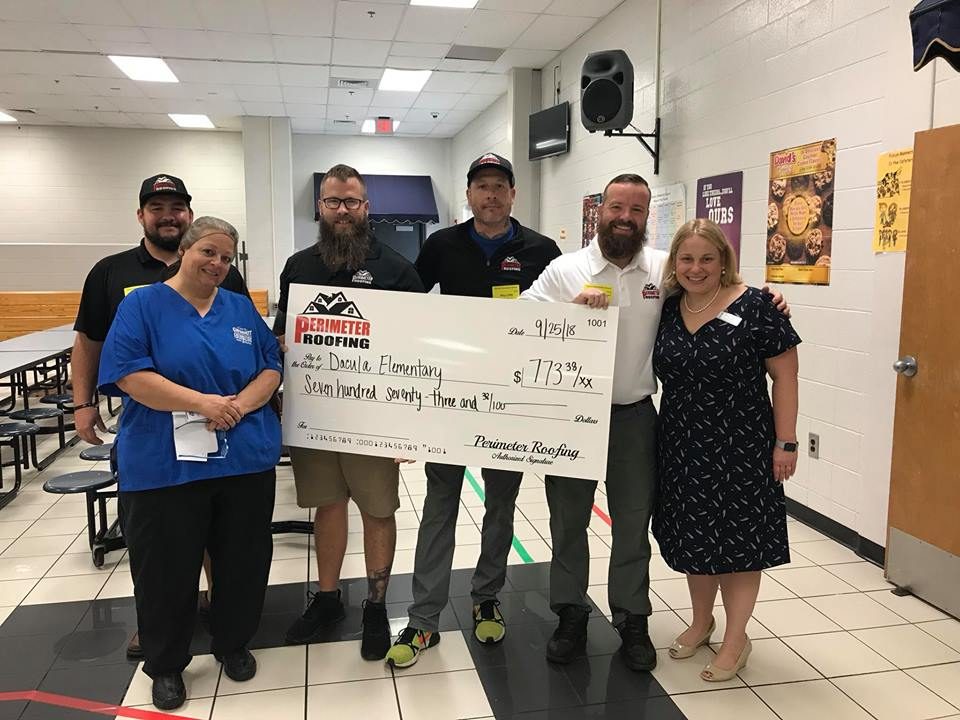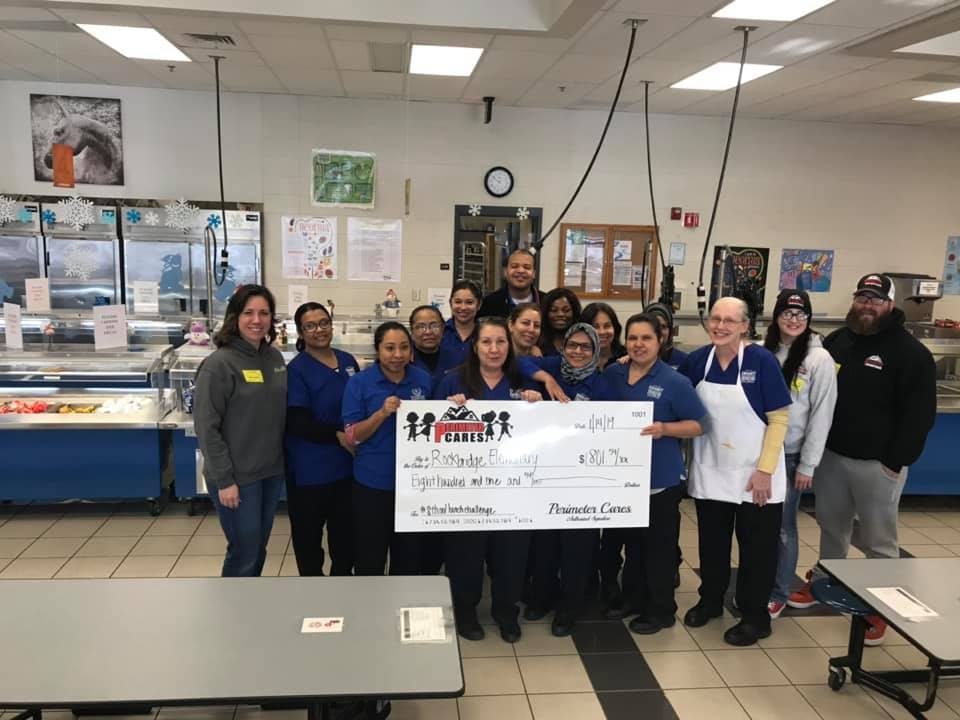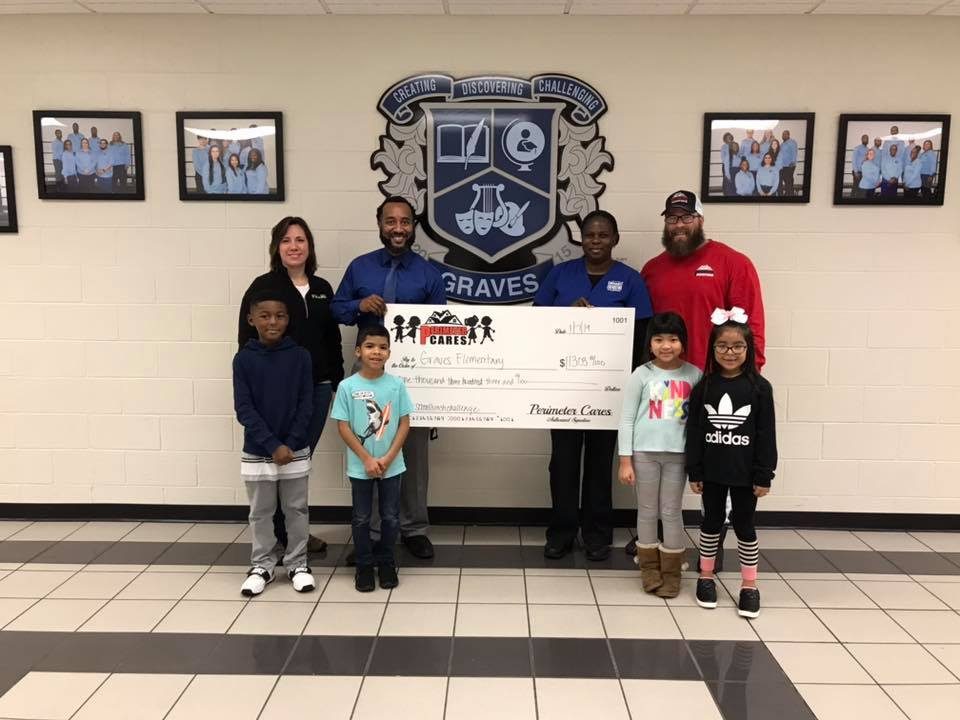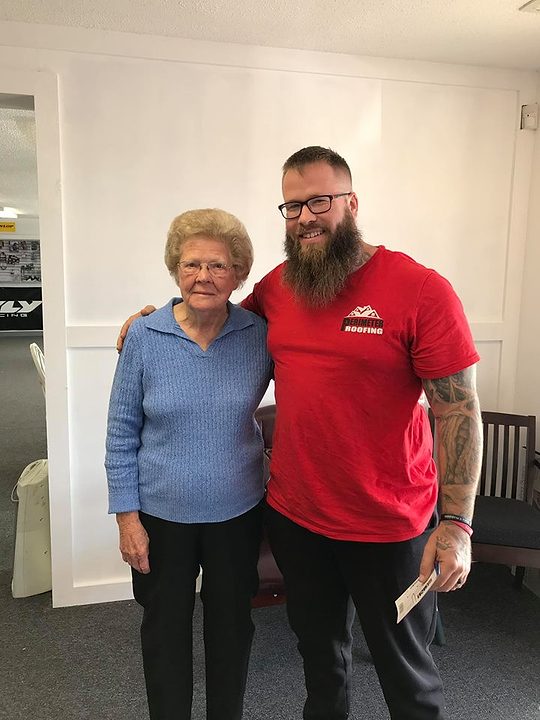One Roofing Contractor’s Mission to Erase Student Lunch Debt

The first of 30 check presentations Perimeter Roofing has made to Georgia elementary schools since September. (Facebook photo)

One of the 30 check presentations Perimeter Roofing has done to help pay off school lunch debt since September. (Facebook photo)

One of the 30 check presentations Perimeter Roofing has done to help pay off school lunch debt since September. (Facebook photo)

Perimeter's Todd Price poses with a woman who heard about the program and wanted to donate. (Facebook photo)




LAWRENCEVILLE, Ga. — A Georgia roofing contractor is on a mission to help eradicate student lunch debt across the state and ensure no student goes without the meal — with the hope that others follow suit.
Since September, Lawrenceville, Ga.-based Perimeter Roofing has paid off school lunch debts at 30 schools and is now averaging about two a week with no plans to slow.
Total debts paid off per school typically range from $300 to $1,500 — a relatively small amount to pay for what Owner Todd Price says makes a big difference.
“We’ve made it a goal to pay off every school in the state of Georgia,” Price told RC. “To not only help the schools out, but also kind of bring it to light because so many people don’t realize (student lunch debt) is an issue.
“Eating should be the least of a kid’s worries,” he added.
The effort to raise awareness is gaining momentum.
Local TV news and newspapers picked up on the efforts of Perimeter Roofing, and word spread via the internet and social media.
Price said he knows other roofers have followed his lead because they have started tagging him and/or Perimeter Roofing on Facebook using the #schoollunchchallenge hashtag. And other contractors in Georgia have reached out to Price and told him they will cover a specific county or part of the state.
Additionally, individuals outside the roofing industry have heard the story and expressed interest in making contributions to the program. As a result, Perimeter Roofing has established a 501(c)(3) nonprofit called Perimeter Cares, which now has a Facebook page and website that allows for donations.
“We can’t do it all ourselves,” Price said of the goal to erase student lunch debt in Georgia. “Shedding light on the issue and trying to help as many kids as possible is our biggest thing.”
Price launched Perimeter Roofing in 2016 after leaving the company he previously co-owned.
Perimeter Roofing does commercial and residential roofing throughout the state of Georgia. In addition to its headquarters, it has locations in Athens, Buford, Marietta, and Columbus.
Perimeter also has a franchised location in Lynchburg, Va. with plans to expand into two other markets soon, Price said.
The origins of Perimeter’s efforts to pay off school lunch debts traces to a giveaway Price said he spearheaded as a way to give back to the community and raise brand awareness for the company.
Giveaways (for stuff like grills, TVs, etc.) are common for Perimeter, he said, and typically have some type of action component.
During one such giveaway, Perimeter pledged to donate $5,000 to a charity chosen by the winner of a drawing. The primary requirement to enter the drawing was that participants had to do one good deed (they didn’t even have to identify the deed) and share the company’s Facebook video about the giveaway.
“We were just trying to establish some more good — there’s so much negativity in the world,” Price said.
As part of the giveaway, Perimeter staff got in on the good deeds.
Price said one of his partners had heard about the lunch debt at a local school and wanted to pay it off as his good deed.
That prompted Price to do research on the topic — a process that he says began opening his eyes to the scope of the problem and what it means to young students.
“A lot of people think that the government pays for school lunches if the kids don’t have money or that all of the lunches are free — and, yes, there are some people that can qualify for free or get assisted, but sometimes those people have a problem with that assisted price. And we’ve heard stories about some parents that just don’t care.”
When a lunch debt reaches $11.25 — equal to about a week’s worth of lunch — students essentially are cut off.
According to LunchDebt.org, a practice known as “lunch shaming” can occur. That’s when students are given an “alternate meal” to what they would otherwise receive. LunchDebt.org says that in addition to the shear embarrassment of receiving the alternate meal, students who are hungry are more likely to perform at lower levels in class.
After paying of that student lunch debt at the initial school, Price said the decision was made to continue the practice with other elementary schools. What schools are selected is dependent on various factors, he said, but the focus for Perimeter has been on the markets it serves first.
“But we’ve had people message us on Facebook saying ‘You need to hit this school’ or ‘You need to hit that school,’” he said.
Price — who has a 2-year-old daughter and a son due in April — said exposure to the schools helped him quickly understand just how important lunch at school is for many kids.
“We hear stories of students crying the week of Thanksgiving or crying the week of Christmas because they’re going to go home and not have any food,” Price said. “They live in hotels, or extended stays, or they have to take home half their lunch to their younger siblings — just crazy stuff.”
Officials at different schools have shared other stories, he said, like parents being forced to decide between paying bills to avoid utility shutoffs or giving their kids money for lunch.
Whatever the reason students run up lunch debts, Price said he thinks it’s important to remember that “it’s not the kids’ fault.”
“I don’t think any child deserves that,” he said.
As for the difference already made, Price said he feels “good.”
“Seeing other people doing it, knowing we kind of started a culture that’s doing some good in the community and nation even — especially when there’s so much…negativity and drama everywhere — it feels good to be part of it,” he said.
Looking for a reprint of this article?
From high-res PDFs to custom plaques, order your copy today!












